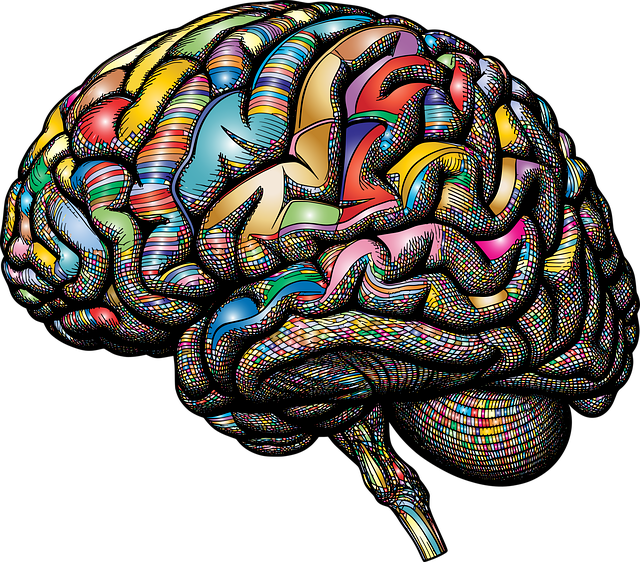Childhood trauma can have profound effects on mental health, with anxiety disorders becoming a growing concern. Early intervention is key; crisis support and teaching coping strategies are initial steps. Therapies like CBT, EMDR, mindfulness, and creative approaches help process trauma and develop healthy mechanisms. Culturally sensitive therapists play a vital role in reducing stigma and offering tailored self-care practices. Evidence-based treatments, including CBT, mindfulness, and exposure therapy, have proven successful. Building resilient support systems, incorporating cultural sensitivity, and promoting awareness are essential for effective therapy for children anxiety and improved recovery outcomes.
Trauma support services for children are crucial in addressing the profound impact of childhood trauma on mental health. This article delves into various aspects of helping young minds overcome anxiety disorders. We explore the roots of childhood trauma, its effects on psychological well-being, and the signs to look out for. Additionally, it highlights the critical role therapists play, presents evidence-based treatment options, and emphasizes building resilient support networks for optimal recovery. Key focus: therapy for children’s anxiety.
- Understanding Childhood Trauma and Its Impact on Mental Health
- Identifying Signs of Anxiety in Children
- The Role of Therapists in Providing Supportive Care
- Evidence-Based Treatment Approaches for Child Anxiety Disorders
- Building Resilient Support Systems for Better Recovery
Understanding Childhood Trauma and Its Impact on Mental Health

Childhood trauma, whether it’s abuse, neglect, or exposure to violent events, can have profound and lasting effects on a child’s mental health and overall well-being. This is because young minds are still developing coping mechanisms and resilience, making them more vulnerable to the impact of traumatic experiences. Early life trauma can disrupt brain development, leading to difficulties in emotion regulation, memory formation, and social interaction. As a result, individuals who have experienced childhood trauma may struggle with anxiety, depression, post-traumatic stress disorder (PTSD), and other mental health challenges as they grow older.
Effective support for children who have endured trauma involves specialized therapy that caters to their unique needs. Therapy for children with anxiety disorders, often stemming from traumatic events, can incorporate various evidence-based approaches such as cognitive behavioral therapy (CBT) and eye movement desensitization and reprocessing (EMDR). These therapeutic methods help children process their traumatic memories, develop healthy coping strategies, and rebuild a sense of safety and trust. Additionally, communication strategies that encourage open dialogue between therapists and clients, along with comprehensive risk assessments for mental health professionals, are essential to ensuring a supportive and secure environment for healing. Moreover, focusing on self-esteem improvement can empower children to challenge negative thoughts associated with trauma and foster resilience as they navigate their mental health journey.
Identifying Signs of Anxiety in Children

Children often express anxiety in unique ways, and identifying these signs is crucial for providing them with much-needed support. One of the initial steps in offering therapy for children’s anxiety involves being attuned to their behavioral changes. For instance, a child may exhibit excessive shyness or retreat into silence when separated from their primary caregivers. They might also display frequent physical complaints like stomachaches or headaches without any apparent medical cause. These could be indicators of underlying anxiety that requires professional intervention.
Crisis intervention guidance is essential here, teaching children coping strategies to manage their emotions. Through various emotional regulation techniques, such as deep breathing exercises and mindfulness practices, kids can learn to recognize and control their anxious responses. Additionally, promoting emotional well-being through creative outlets like art therapy or storytelling can help them express and process their feelings effectively.
The Role of Therapists in Providing Supportive Care

Therapists play a pivotal role in trauma support services by offering specialized care for individuals, especially children suffering from anxiety disorders. Through evidence-based practices, therapists create safe spaces where clients can process and overcome traumatic experiences. By facilitating open communication and employing techniques like cognitive behavioral therapy (CBT), therapists help individuals develop coping strategies to manage their anxiety effectively.
Beyond direct therapeutic interventions, therapists contribute to Mental Illness Stigma Reduction Efforts by fostering understanding and empathy within the community. They educate healthcare providers on cultural competency training, ensuring that Self-Care Practices are tailored to meet the unique needs of each client. This holistic approach not only enhances the effectiveness of trauma support services but also promotes overall well-being in affected individuals.
Evidence-Based Treatment Approaches for Child Anxiety Disorders

Child anxiety disorders are a growing concern, but advancements in therapy offer hope and effective solutions. Evidence-based treatment approaches like Cognitive Behavioral Therapy (CBT) have proven successful in addressing anxiety in children. CBT equips young individuals with coping strategies by helping them identify and challenge negative thought patterns and behaviors associated with anxiety. This therapeutic method encourages children to gradually face their fears in a safe environment, fostering resilience and emotional intelligence.
Beyond CBT, other evidence-based practices such as Mindfulness-Based Therapies and Exposure Therapy have shown significant benefits. Public awareness campaigns development and healthcare provider cultural competency training play a crucial role in promoting access to these therapies. By increasing understanding and reducing stigma, more children can receive the necessary support. Emotional intelligence is also integral to trauma support, enabling caregivers and therapists to connect with young clients on a deeper level, thereby enhancing treatment outcomes.
Building Resilient Support Systems for Better Recovery

Building Resilient Support Systems for Better Recovery
In the context of trauma support services, establishing robust and culturally sensitive systems is paramount to facilitate effective healing processes. Mental wellness is significantly enhanced when children with anxiety disorders receive tailored therapy that incorporates their unique needs and backgrounds. Cultural sensitivity in mental healthcare practice ensures that treatments are accessible and relatable, fostering trust and engagement. By addressing these factors, support systems become more resilient, enabling better recovery outcomes for young individuals navigating trauma.
This holistic approach not only focuses on the individual but also considers the broader community and family networks. Resilient support systems promote emotional healing by providing safe spaces, offering consistent care, and encouraging open communication. Tailoring therapy for children with anxiety disorders to incorporate cultural considerations can significantly reduce barriers to treatment, making mental healthcare more inclusive and effective.
In addressing childhood trauma and its impact on mental health, it’s clear that a comprehensive approach is essential. By identifying signs of anxiety in children early and involving therapists in supportive care, we can implement evidence-based treatment approaches like cognitive-behavioral therapy (CBT) for effective management of child anxiety disorders. Ultimately, building resilient support systems strengthens recovery, ensuring children receive the best possible care. For parents and caregivers, understanding these strategies and seeking professional help when needed is crucial in fostering healthy development and a brighter future for our young ones. Remember that access to quality trauma support services can make all the difference.








